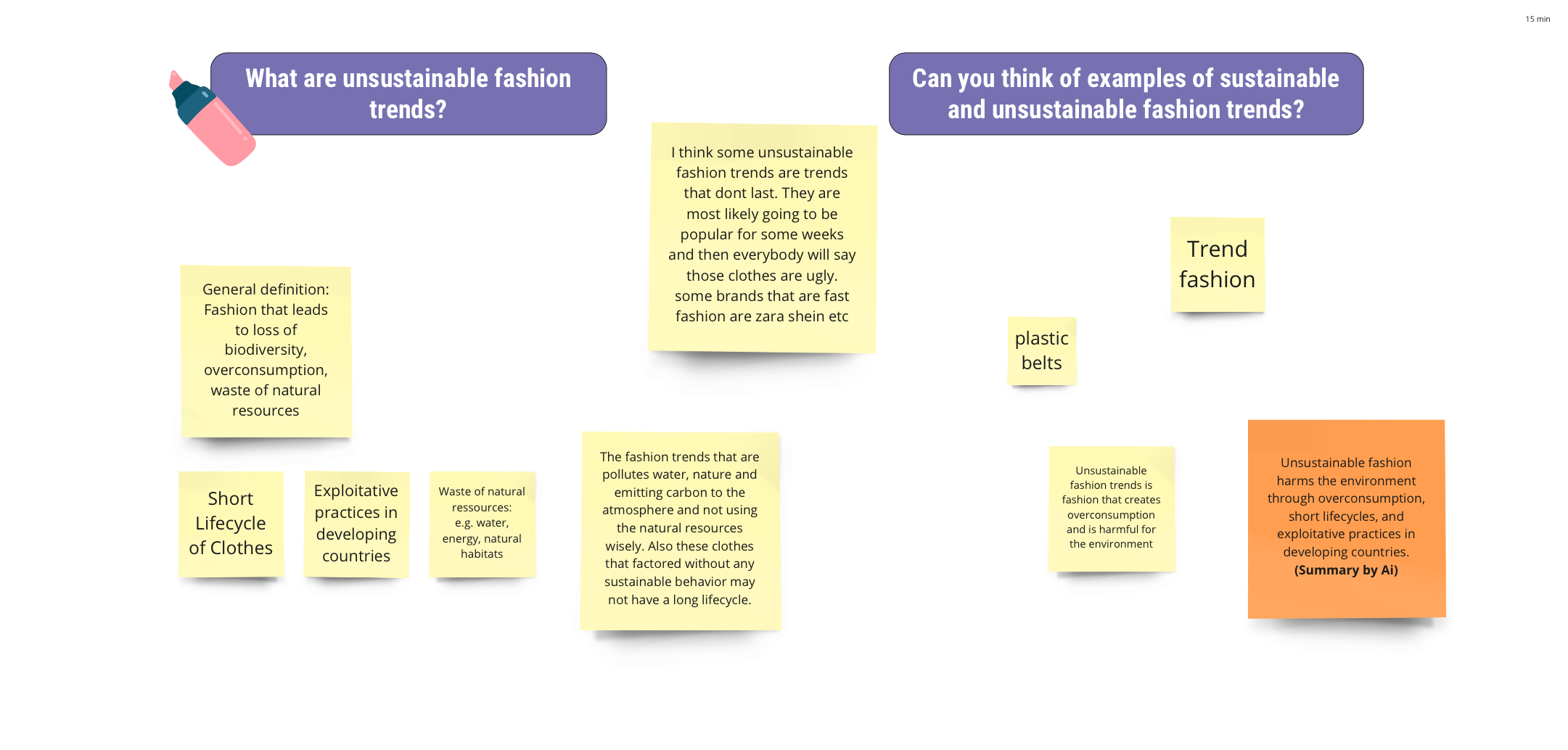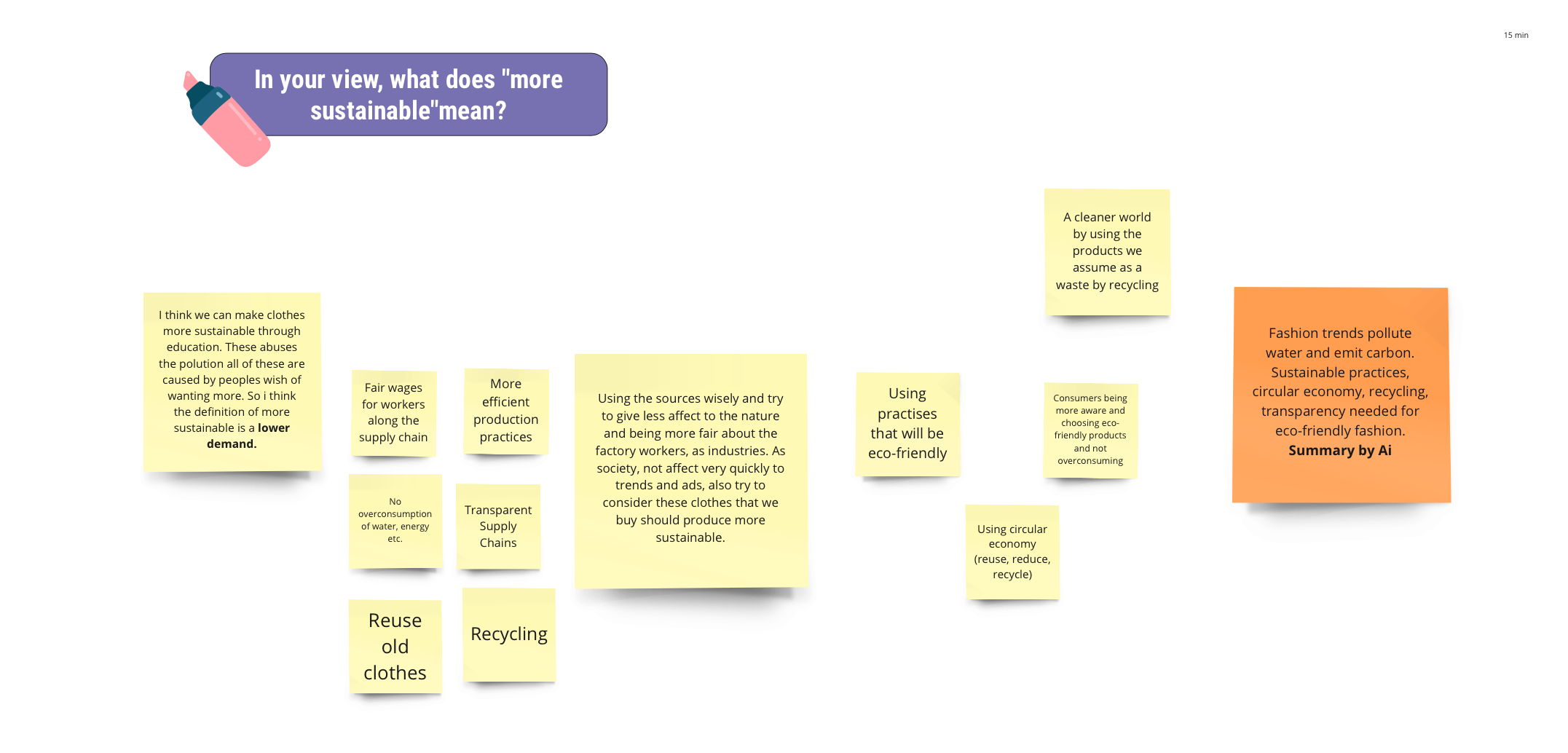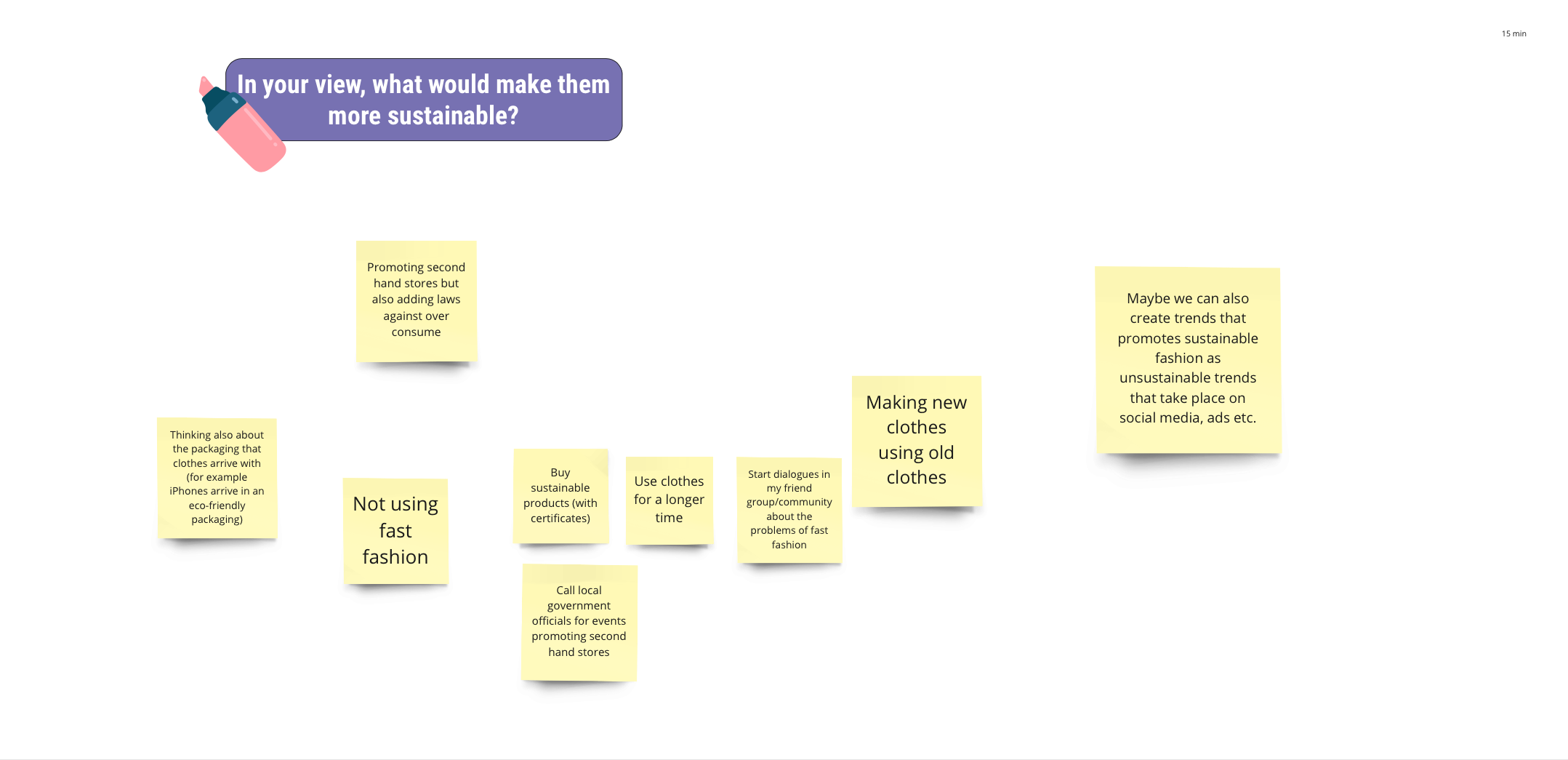Last week we attended the first meeting of the Youth Climate LAB on how to make unsustainable fashion trends more sustainable! We were incredibly engaged in this topic and tried to brainstorm together to define what are unsustainable fashion trends
What was on?
During this first meeting, we explored possible definitions and characteristics of unsustainable fashion trends to establish a common understanding for the upcoming meetings.
What emerged?
We defined fashion trends as unsustainable when:
- they have a high environmental impact in its production and distribution chain. Although production chain that produce short-life cycle clothing bear lover costs, they have a high impact on the environment;
- they exhibit a lack of respect for labor rights. There are many examples of exploitation of workers in the fashion industry who do not enjoy minimum rights and suffer from the consequences deriving from the use of pollutants in clothing production.
Furthermore, we identified key elements that foster the creation of new unsustainable trends, including the importance to feel part of a group, which is also showcased through how we dress.
This cultural element is promoted even more through social media, where you can find numerous ads encouraging to buy new trendy clothes that we end up using for a short period of time.
These ads exploit human psychology to increase demand and foster overconsumption, which in turn, triggers overproduction. Indeed, the high demand of new clothes fosters their production and vice versa.


What was the outcome?
With this in mind, we suggest to came up with preliminary suggestion on how to reduce demands, such as:
- Promoting circular economic models, such as second-hand shops and classic fashion trends (instead of the short-life trends), and reusing the textile of old clothes to produce new ones;
- Reforming less polluting production and distribution chains, encouraging less polluting practices;
- Raising awareness on the environmental impacts of the fashion industry through labels and information sessions in order to stimulate for more eco-friendly consumer choices.



Are you interested in this discussion? Are you a young citizens below 30 years old? Register to the second meeting: https://education-for-climate.ec.europa.eu/community/event/youth-climat…
Valentin Ranke Kyriaki Maria Papadopoulou Irina - Maria Ungureanu Eren Öğütcü Ezgi Şenkal
Please log in or sign up to comment.